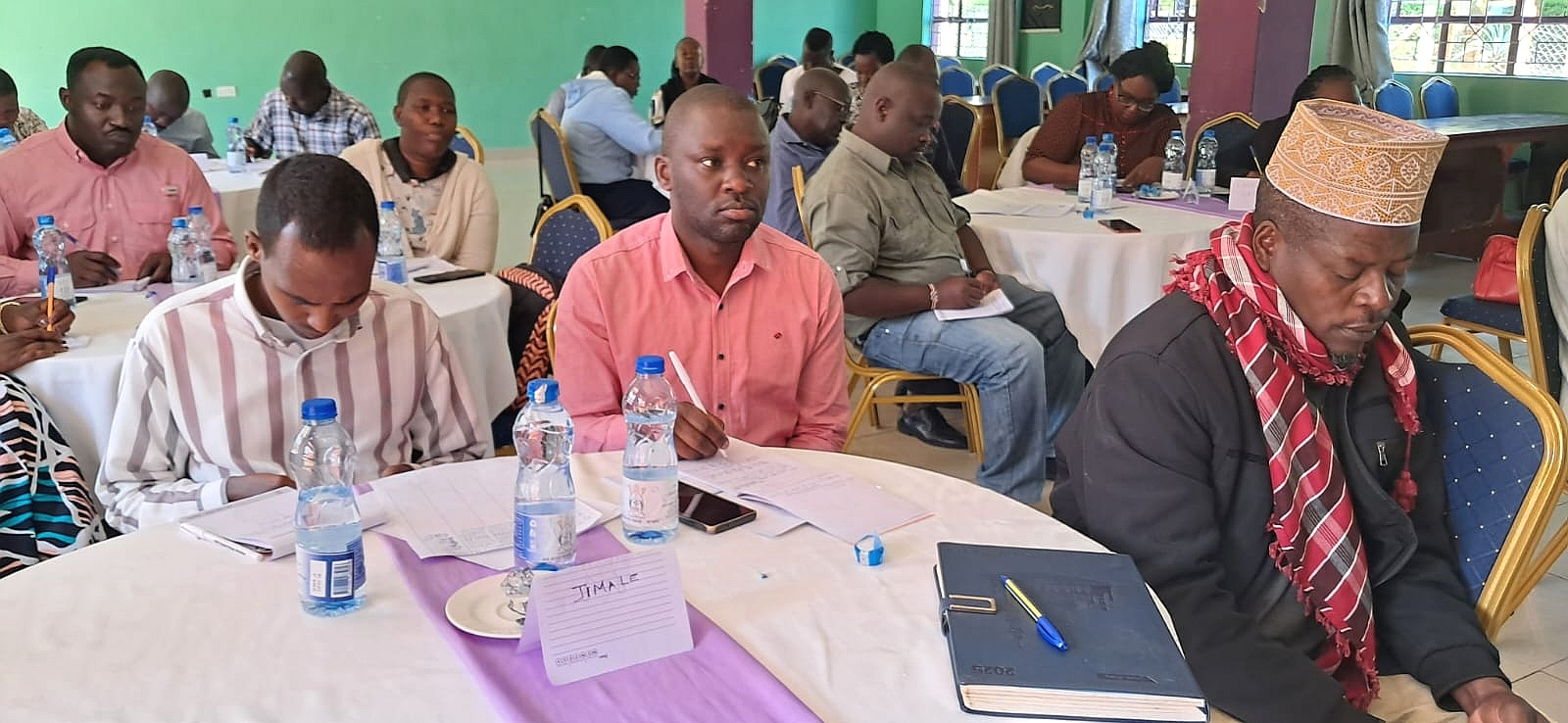
 Stakeholders during a ToT workshop on foster care at ACK Guest House in Mumias on Friday /HILTON OTENYO
Stakeholders during a ToT workshop on foster care at ACK Guest House in Mumias on Friday /HILTON OTENYOThe government has begun training prospective foster care
trainers in Kakamega County as part of a nationwide push to transition children
from institutional care to family-based environments.
The initiative is anchored in the National Care Reform Strategy, which seeks to move thousands of children from Charitable Children’s Institutions (CCIs) and statutory facilities into family setups that provide nurturing and stability.
Speaking during a Training of Trainers workshop at the ACK Mumias Guest House, programme head Aston Maungu said the trainers will be responsible for recruiting and preparing foster parents across the county.
“The prospective parents will lawfully and procedurally take up children in a family-based environment that has been proved to provide loving and nurturing care for children,” Maungu said.
The workshop brought together national government administration officers, police officers, journalists, child care volunteers and representatives from CCIs.
The programme, a partnership between the State Department for Children Services and the United Nations Office on Drugs and Crime, has already been piloted in Murang’a, Kiambu, Meru, Kilifi, Kisumu and Machakos counties.
By 2032, the government hopes to transition an estimated 45,000 children from CCIs and another 3,000 from statutory institutions into family care.
Maungu said the reform strategy provides a clear roadmap and options for alternative care, including foster care, guardianship, adoption, Kafaala (for Muslims), supported independent living, child-headed households and kinship care.
He acknowledged stigma has slowed progress, with many people wrongly associating alternative care with child theft or trafficking. “Most people have wrongly associated alternative care options with child theft, buying and trafficking, making willing prospective parents shy away from coming forward,” Maungu said.
He clarified that the government was not shutting down CCIs but rather transitioning children to more sustainable family-based care, with institutions shifting to support children within their communities.
“This will reduce the cost of taking care of a child in CCIs. These children go there because of lack of parental care, food, school fees and accommodation, which can also be met in family setups,” he said.
Maungu added that CCIs are realising the funds used to support a single child can comfortably sustain an entire household. He also pointed to decades of research showing that children in institutions often lag behind their peers academically, losing up to three months of cognitive achievement each year.












